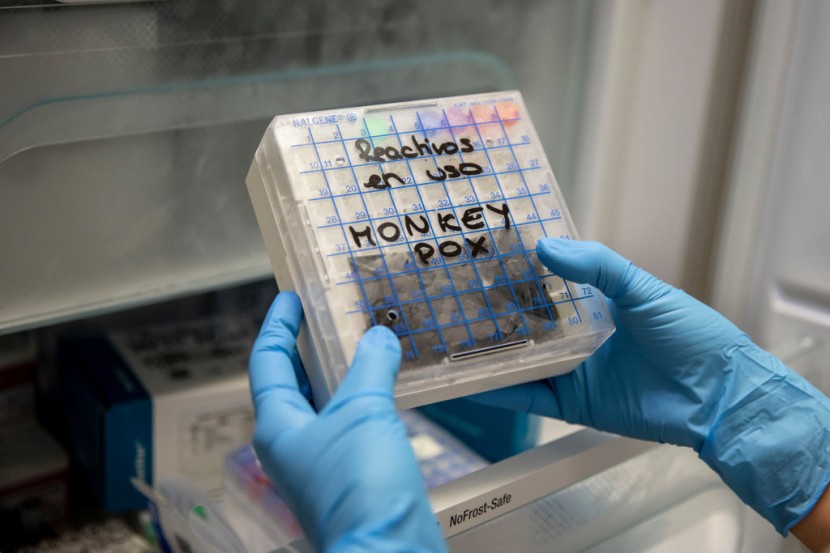
The World Health Organization's (WHO) technical director on the monkeypox response, Dr. Rosamund Lewis, disclosed the first possible instance of human-to-dog transmission of monkeypox, recently reported in two men and their pet in Paris.
The men were diagnosed with monkeypox in early June at a hospital in Paris. They are in a non-exclusive relationship and living together.
According to a report last week in the journal The Lancet, their 4-year-old Italian greyhound also started exhibiting symptoms 12 days after their symptoms first appeared.
The men said they had allowed their dog to lie in their bed and that they had taken precautions to keep their pet away from other animals and people ever since the onset of their symptoms, which occurred before the symptoms in the dog, were noticed.
According to the authors of the research, "the kinetics of symptom onset in both patients and, subsequently, in their dog, suggest human-to-dog transmission of monkeypox virus."
"Given the dog's skin and mucosal lesions as well as the positive monkeypox virus PCR results from anal and oral swabs, we hypothesize a real canine disease, not a simple carriage of the virus by close contact with humans or airborne transmission (or both)."
The study's authors pushed for more research and argued that it should raise the question of whether sick pets should be kept apart from their owners, per CNN report.
CDC Advises the Public To Stay Away From Infected Animals
Recently, the US Centers for Disease Control and Prevention modified their site acknowledging Monkeypox human to dogs transmission.
The health agency noted that its experts are "still learning" which species of animals can be infected with monkeypox.
"While we do not know if reptiles, amphibians, or birds can get monkeypox, it is unlikely since these animals have not been found to be infected with other orthopoxviruses."
In addition, the CDC noted that infected animals may transfer the disease to humans, and it is "possible" that infected individuals may transmit the monkeypox virus to animals through "close contact, including petting, cuddling, hugging, kissing, licking, sharing sleeping areas, and sharing food."
Monkeypox patients are advised by the organization to stay away from all animals, even their own pets.
Meanwhile, Robert Koch Institute reported Germany's first case of monkeypox in a child in early August. A 4-year-old girl living in a household with two infected adults in the southwestern state of Baden-Württemberg had tested positive but showed no symptoms of the disease.
Read Also : Scientists Seek To Resurrect Tasmanian Tiger Extinct Since 1936 Using Advanced Genetics Technology
Countries like the US, France, the Netherlands, and Spain have reported cases of the disease in children, per ABS CBN News.
Globally, there had been 103 cases in children aged 17 and younger, according to the World Health Organization (WHO). Of those, 26 cases were reported in children aged 0 to 4. The total number of monkeypox patients whose age was known stood at 19,591 as of August 12.
Overall, more than 34,000 cases of monkeypox have been reported across the world so far.
Monkeypox Could Be Renamed
In other updates on Monkeypox, the WHO said that the disease could be renamed after some critics expressed concern that the current name would be stigmatizing and discriminatory, as reported by Fox News.
The Food and Agriculture Organization of the United Nations (FAO), which assists in identifying best practices for naming new human diseases, was consulted by the WHO regarding the proposal to avoid offending any cultural, social, national, regional, professional, or ethnic groups, and "minimize any negative impact on trade, travel, tourism, or animal welfare".
The U.N. stated on Friday that to prevent discrimination, the health authorities also claimed to have renamed two families, or clades, of the virus using Roman numbers rather than specific locations.
Related Article: UK Inflation Hits 10% as Food Prices Soar, Highest Rate in 40 Years
© 2026 HNGN, All rights reserved. Do not reproduce without permission.








